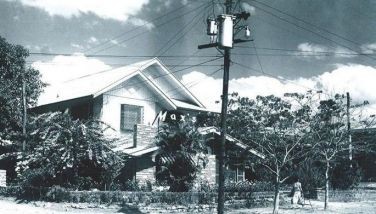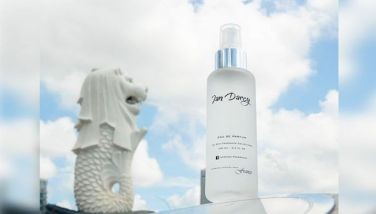Public matter

After briefings that scan all the shortcomings of our politics, I have sometimes said that one has to be insane to want to be President of this country. But I have said that in a very light vein, intending it as method for emphasizing the seriousness of the defects we need to deal with in our politics.
The last few days, there has been an intense buzz in cyberspace over allegations that a leading presidential candidate had to seek professional psychological help for emotional stress. The evidence offered is at best tenuous and at worst incredible.
There has been a lot of tit-for-tat over the matter. Partisans of the presidential contender concerned have blamed the allegation (or the leak, whatever that might be) on a main rival. The allegation is being dismissed as black propaganda.
Some of those partisans, in the valiant defense of their principal, have said that any consultation with a mental health professional is an entirely private matter. This is the point I take issue with.
When anyone offers himself to be leader of the nation, nothing is a private matter. The sovereign people, who are exercising their choice through the vote, deserve to know everything about a candidate who offers himself as a leader.
When this newspaper invites candidates to be grilled by its editors and columnists, the guests are subjected to questions that, in other circumstances, might be considered impolite.
For instance, they are bluntly asked to have their blood pressure taken. They are asked about any illnesses they might have had. Were they hospitalized for anything?
Because they are candidates, questions like these cannot be considered impolite. They involve information the public should know.
In the 2004 elections, we will recall, two presidential contenders died shortly after the elections.
Fernando Poe Jr. succumbed to what appears to be a stroke. Raul Roco yielded to a lingering disease.
I am not a doctor. I do not know if what killed FPJ is something that might have been detected by thorough tests before elections were held. At that time, it was considered improper to bluntly ask a presidential candidate if he had a check-up recently and what findings there were if any.
After what happened, the same question cannot now be considered improper.
I admire Raul Roco a lot. I grieved his passing like many Filipinos did. But I was always uncomfortable with the thought that the man knew he was suffering from a terminal illness and did not disclose that fact to the voters.
Perhaps, because he knew he was ill, he should not have sought the highest office in the land at all. Imagine the great political uncertainty that will have been created had he won the elections and then grappled with his illness in his first months in office. Imagine how disappointed his supporters might have been that the man who offered himself leader of the nation did not exercise transparency about his own health condition.
Because of what happened to FPJ and Roco shortly after the 2004 elections, voters are within their rights to demand full disclosure from their candidates. They are merely exercising what, in the world of business, is called “due diligence.” Before any deal is concluded, the parties to the deal are expected to ask their partners some hard questions and examine their balance sheets closely.
When parties to a deal exercise due diligence and look deep into the affairs of their counterparties, that is not considered impolite. It is part of the normal course of doing business.
In the same way, when voters demand to know everything about their candidate, they are not being improper. They are simply being diligent.
If a candidate suffers from any ailment or has sought professional help for emotional stress, the information required cannot be wrapped in a shroud of secrecy and declared a “private matter.” In the world of electoral democracy, full disclosure is a hard albeit unwritten rule. It must be observed.
If information about a candidate’s ailment is contrived or fabricated, that is indeed underhanded campaign tactics. But if the information is valid, its release into the public sphere is completely regular.
In the light of recent allegations — although not necessarily related to it — may we please ask our candidates to be candid about any malaise they might be nursing?
Full disclosure is a sign of respect for our voters. They are, after all, the true sovereigns in this exercise.
Conversely, withholding information from our voters is a sign of disrespect for the electors. It is an instance of bad faith akin to a seller of, say, fresh mangoes who hides rotten fruit under shimmering ones atop the basket.
More, withholding information from electors is a serious breach of democratic ethics. Any matter that might affect the performance of an elected public official is a public matter that must be transparently considered.
This is the way it has to be, uncomfortable as it might be to some presenting themselves for the most sensitive posts of public leadership. We have often denounced our electoral politics as nothing more than horse trading. But even horse-traders demand full examination of the animal being considered for sale.
Maybe it is time to call in our medical professionals to help settle the partisan quarrel about the state of some of the candidates’ health.
- Latest
- Trending























